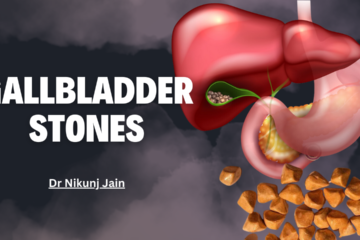Introduction:
Maintaining a healthy gut is crucial for overall well-being and plays a significant role in our physical and mental health. Our gut, also known as the gastrointestinal tract, is responsible for digesting food, absorbing nutrients, and supporting a robust immune system. In this blog, we will explore the importance of maintaining gut health and provide practical tips to prevent digestive disorders.
The Gut Microbiome:
a. The gut microbiome refers to the trillions of beneficial bacteria and other microorganisms residing in our digestive system.
b. A diverse and balanced gut microbiome promotes proper digestion, nutrient absorption, and protects against harmful pathogens.
c. Imbalances in the gut microbiome, known as dysbiosis, can lead to digestive disorders, inflammation, and weakened immunity.
Nutrient Absorption and Digestive Health:
a. A healthy gut allows for efficient absorption of essential nutrients, vitamins, and minerals from the food we consume.
b. Digestive disorders, such as irritable bowel syndrome (IBS) or inflammatory bowel disease (IBD), can impair nutrient absorption, leading to deficiencies and related health issues.
Gut-Brain Axis and Mental Health:
a. The gut-brain axis is a bidirectional communication system between the gut and the brain.
b. Maintaining a healthy gut has been linked to improved mental health and emotional well-being.
c. Imbalances in the gut microbiome can contribute to conditions like anxiety, depression, and stress.
Immune System Function:
a. Approximately 70% of the body’s immune system is located in the gut-associated lymphoid tissue (GALT).
b. A healthy gut supports a robust immune response, helping to defend against infections and autoimmune diseases.
c. Dysbiosis and compromised gut health can weaken immune function, making individuals more susceptible to illnesses.
Tips for Maintaining Gut Health and Preventing Digestive Disorders:
a. Eat a balanced diet rich in fiber, whole grains, fruits, vegetables, and fermented foods like yogurt and sauerkraut.
b. Stay hydrated to support optimal digestion and bowel movements.
c. Minimize the consumption of processed foods, refined sugars, and artificial additives.
d. Manage stress through techniques like meditation, exercise, and adequate sleep.
e. Avoid unnecessary antibiotic use and discuss alternatives with your healthcare provider.
f. Consider incorporating probiotic and prebiotic-rich foods or supplements to support a healthy gut microbiome.
g. Seek medical advice if experiencing persistent digestive issues or symptoms of digestive disorders.
Lifestyle Habits for Gut Health: Exercise, Sleep, and Stress Management
Introduction:
When it comes to maintaining a healthy gut, it’s not just about what you eat but also how you live. Lifestyle habits play a crucial role in supporting optimal gut health. In this blog, we will explore the impact of exercise, sleep, and stress management on gut health and provide practical tips to incorporate these habits into your daily routine.
The Gut-Brain Connection:
a. The gut and the brain communicate through the gut-brain axis, influencing each other’s functions.
b. Stress and anxiety can disrupt the balance of the gut microbiome, leading to digestive issues.
c. Lifestyle habits that promote stress management can positively impact gut health.
Exercise and Gut Health:
a. Regular physical activity stimulates intestinal contractions, promoting healthy digestion and bowel movements.
b. Exercise helps maintain a healthy weight, reducing the risk of obesity-related gut disorders.
c. Physical activity can enhance gut motility, reducing the likelihood of constipation and promoting regularity.
Tips:
Aim for at least 30 minutes of moderate-intensity exercise most days of the week.
Engage in activities you enjoy, such as walking, jogging, dancing, or cycling.
Practice yoga or Pilates, as they can help improve digestion and reduce stress.
Sleep and Gut Health:
a. Sufficient, quality sleep is essential for overall health, including gut health.
b. Inadequate sleep can disrupt the gut microbiome and impair digestion.
c. Sleep deprivation has been linked to increased inflammation in the gut and a higher risk of gastrointestinal disorders.
Tips:
Establish a consistent sleep schedule and prioritize getting 7-9 hours of quality sleep each night.
Create a calming bedtime routine, such as reading a book or practicing relaxation techniques.
Create a sleep-friendly environment by keeping your bedroom cool, dark, and quiet.
Stress Management and Gut Health:
a. Chronic stress can negatively impact gut health by altering the gut microbiota composition.
b. Stress can disrupt digestion, leading to symptoms like bloating, cramping, and diarrhea.
c. Implementing stress management techniques can support a healthy gut.
Tips:
Practice mindfulness meditation, deep breathing exercises, or yoga to reduce stress levels.
Engage in activities that bring you joy and help you unwind, such as hobbies, spending time in nature, or listening to calming music.
Prioritize self-care and set boundaries to manage stress effectively.
Conclusion:
Prioritizing gut health is essential for overall health and well-being. By maintaining a healthy gut, we support proper digestion, nutrient absorption, immune function, and mental well-being, importance of maintaining gut health. Implementing lifestyle modifications and adopting a gut-friendly diet can help prevent digestive disorders and promote a thriving gut microbiome. Remember to consult with a healthcare professional for personalized guidance on maintaining optimal gut health.
Read More –
Factors to Consider When Searching for the Best Hernia Surgeon in Indore – https://drnikunjjain.com/factors-to-consider-when-searching-for-the-best-hernia-surgeon-in-indore/
Types of Hernias | How a Skilled Surgeon Can Help – https://drnikunjjain.com/types-of-hernias-how-a-skilled-surgeon-can-help/


